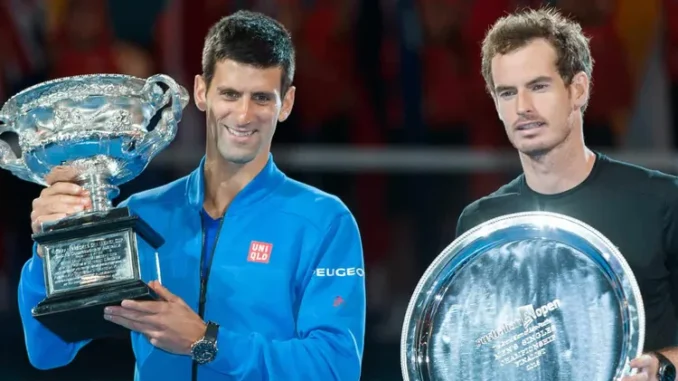
Alexander Zverev, a powerhouse in the tennis world, has added an unfortunate statistic to his career resume, becoming the sixth player in history to lose his first three Grand Slam finals. This development follows his recent defeat in a highly anticipated match, leaving fans and analysts reflecting on the German player’s journey and the challenges he has faced in sealing major titles.
Zverev’s rise in tennis has been marked by extraordinary talent and potential, earning him a place among the sport’s elite. However, his inability to cross the final hurdle in Grand Slam tournaments has become a recurring narrative, raising questions about what it will take for him to achieve the ultimate breakthrough. His latest loss, despite showcasing moments of brilliance, highlighted the narrow margins and intense mental fortitude required to triumph on the sport’s grandest stages.
Reflecting on the match, Zverev acknowledged the disappointment but remained optimistic about his future. “Of course, it hurts to come so close and not get the result I wanted,” he said. “But I believe in my game, and I know I have what it takes to win. I’ll keep working and learning from these experiences.”
Zverev’s journey to his first three Grand Slam finals was far from easy, a testament to his resilience and determination. His first final appearance came at the US Open, where he battled fiercely but fell just short in a five-set thriller. It was a match that demonstrated his immense skill but also revealed areas for growth, particularly in maintaining composure under pressure. His subsequent finals at other major tournaments followed a similar pattern, with flashes of dominance offset by moments where his opponent seized control.
This latest defeat places Zverev in a group with five other players who also lost their first three Grand Slam finals, including Andy Murray, Ivan Lendl, and others who eventually broke through to claim major titles. For Zverev, the comparisons offer both solace and motivation, as many of these players went on to achieve illustrious careers. Murray, for instance, overcame his early struggles to become a three-time Grand Slam champion, a narrative that Zverev can draw inspiration from.
The challenge for Zverev lies not only in his physical capabilities but also in the mental and emotional demands of elite competition. Winning a Grand Slam requires more than just skill; it demands unwavering self-belief, adaptability, and the ability to handle the weight of expectations. Zverev has shown glimpses of these qualities, but harnessing them consistently will be key to rewriting his story.
“I know I have to keep improving, both mentally and physically,” Zverev admitted. “These finals are tough, and the margins are so small. It’s about finding that extra edge when it matters most.”
Despite the setbacks, Zverev’s career trajectory remains impressive. He has already secured numerous ATP titles, an Olympic gold medal, and a reputation as one of the sport’s most formidable players. His serve, baseline power, and tactical versatility have made him a constant threat to the game’s best, earning him respect from peers and fans alike.
The broader context of Zverev’s achievements adds depth to his current predicament. Tennis is in a transitional phase, with the dominance of players like Novak Djokovic and Rafael Nadal giving way to a new generation. Zverev, along with contemporaries such as Daniil Medvedev, Carlos Alcaraz, and Stefanos Tsitsipas, represents the future of the sport. However, breaking through the shadow of legends and establishing oneself as a Grand Slam champion is no small task.
Tennis fans have expressed both frustration and hope for Zverev, recognizing his potential while urging him to rise to the occasion. Social media platforms have been abuzz with debates about what he needs to do differently, with some emphasizing the importance of a strong support system and mental coaching.
One key factor in Zverev’s journey will be how he processes these setbacks and uses them as stepping stones. Many great champions have experienced similar struggles early in their careers, only to emerge stronger and more determined. Zverev’s ability to analyze his performances, address weaknesses, and maintain his confidence will play a crucial role in shaping his legacy.
Looking ahead, Zverev’s focus will likely remain on refining his game and preparing for the challenges of upcoming tournaments. The hunger to prove himself on the Grand Slam stage burns brightly, and his determination to succeed remains unwavering. “Every loss is a lesson,” he said. “I know my time will come. I just have to keep believing and putting in the work.”
While his record in Grand Slam finals may currently be a source of frustration, it also underscores the level of achievement required to even reach those stages. For Zverev, the journey is far from over, and the setbacks may ultimately serve as the foundation for a breakthrough moment that could redefine his career.
As the tennis world watches closely, one thing is certain: Alexander Zverev is a player with the talent, drive, and resilience to change the narrative. Whether his breakthrough comes in the next tournament or further down the road, his story is still being written, and the potential for greatness remains firmly within reach.
Leave a Reply